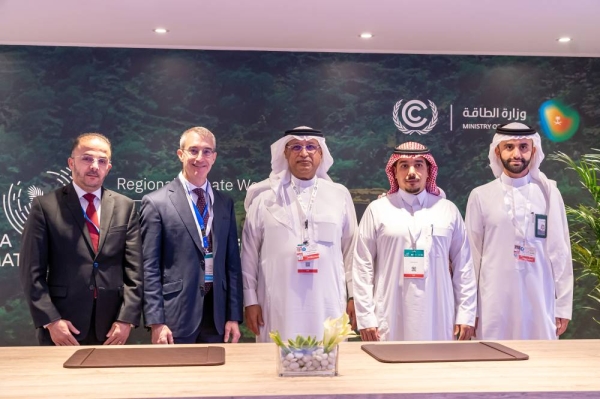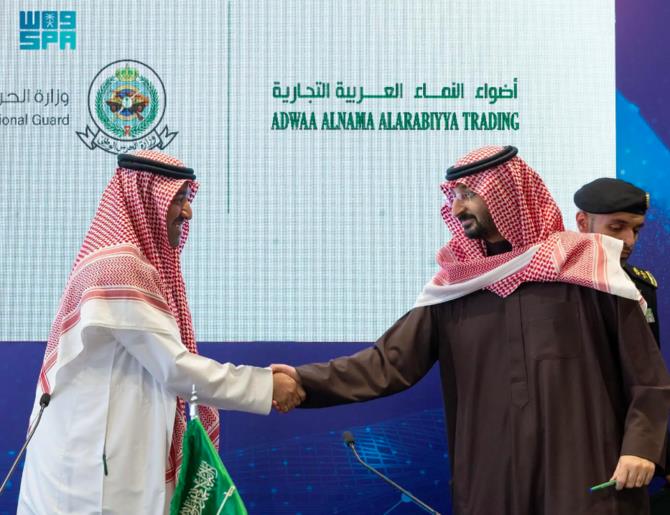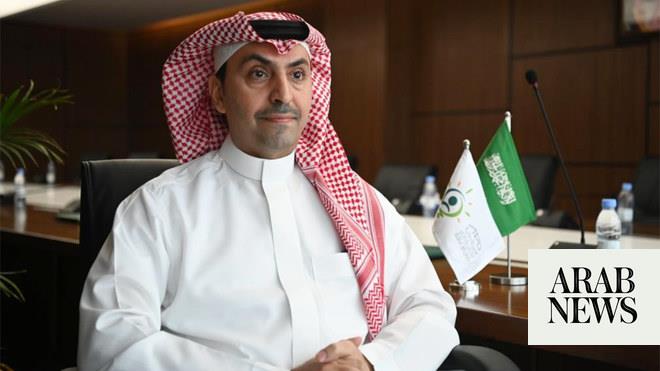
Agreement will play in ensuring the carbon markets established in the Kingdom are transparent, robust, and credible
Saudi Arabia has set a net-zero emissions goal for 2060, adopting a circular carbon economy approach
JEDDAH: A memorandum of understanding between two key entities is set to boost Saudi Arabia’s carbon markets and support the Kingdom’s climate objectives.
The signing of the deal between Regional Voluntary Carbon Market Co. and the Clean Development Mechanism Designated National Authority was witnessed on Oct. 30 by the Kingdom’s Energy Minister Prince Abdulaziz bin Salman, and Yasir Al-Rumayyan, governor of the country’s Public Investment Fund, on the sidelines of the eighth edition of the Future Investment Initiative in Riyadh.
The pact was inked by RVCMC Chair Rania Nashar and CDMDNA Director of Technical Affairs Maria Al-Jishi, acknowledging the essential role the agreement will play in ensuring the carbon markets established in the Kingdom are transparent, robust, and credible, according to the Saudi Press Agency.
Climate change poses a significant challenge for Saudi Arabia, the Middle East, and the global community. Reducing emissions is a top priority for the Kingdom, and voluntary carbon markets are essential for achieving climate targets.
Saudi Arabia has set a net-zero emissions goal for 2060, adopting a circular carbon economy approach that emphasizes reducing, reusing, recycling, and removing carbon.
As part of the Saudi Green Initiative, the Kingdom aims to cut carbon emissions by 278 million tons annually by 2030 and to source 50 percent of its energy from renewable sources.
There is also a strong push to involve the private sector in environmental sustainability projects, particularly in renewable energy, waste management, and eco-friendly construction.
High-integrity carbon credits can help finance climate action by funding projects that reduce and remove carbon emissions, helping accelerate the transition to low-carbon and more sustainable economies worldwide.
The Kingdom has embarked on various initiatives to reduce its carbon footprint and diversify its economy beyond oil.
Mitigative efforts include ambitious targets of 44 million tons of carbon dioxide captured annually by 2035 and 2 million tons of CO2 seized and utilized daily to produce glycol, urea, and green methanol, as well as clean fuels, according to the 14th IEA-IEF-OPEC Symposium on Energy Outlooks.
RVCMC, a partnership between PIF and the Saudi Tadawul Group Holding Co., was established in October 2022 during the sixth edition of the FII Initiative in the Saudi capital.
Some eight months later, the company announced the successful auction of over 2.2 million tons of carbon credits in the largest-ever voluntary carbon credit auction, held in Nairobi, Kenya in June 2023.
The auction offered high-quality CORSIA-eligible and verra-registered carbon credits, enabling buyers operating in various industries to play their part in the global transition.












